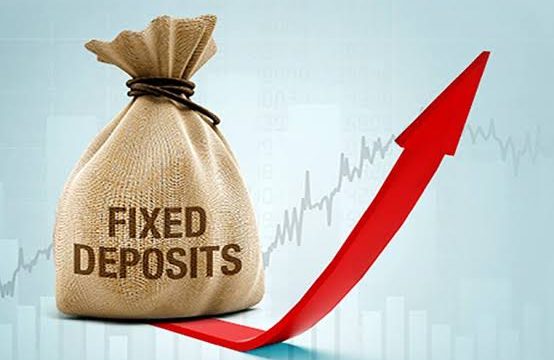Fixed Deposits (FDs) remain one of the most popular investment choices in India, primarily due to their safety and the guaranteed returns they offer. This article will delve into understanding FD interest rates, the factors influencing them, and how you can secure the best rates for your investment. Additionally, we will explore the role of a Fixed Deposit Calculator in planning your investments.
What are FD Interest Rates?
FD interest rates refer to the percentage return that a financial institution offers on the amount deposited for a fixed period. The interest is typically paid out on a monthly, quarterly, half-yearly, or annual basis, or can be compounded and paid at maturity. The rate varies across different banks and financial institutions, and can be influenced by several factors, including the central bank’s monetary policies, market conditions, and the tenure of the deposit.
Factors Influencing FD Interest Rates
- Monetary Policy: The Reserve Bank of India’s (RBI) policies significantly impact FD interest rates. When the RBI raises repo rates, banks may increase FD rates and vice-versa.
- Inflation: Higher inflation generally leads to higher interest rates, as lenders require higher compensation for the reduced purchasing power over time.
- Economic Conditions: During economic downturns, banks might lower FD rates to stimulate spending, while in times of growth, rates might increase.
- Tenure of the Deposit: Long-term FDs usually offer higher interest rates compared to short-term FDs. For example, a 5-year FD might have a higher rate compared to a 1-year FD.
- Type of FD: Different types of FDs, such as tax-saving FDs, senior citizen FDs, or special scheme FDs, may offer varying interest rates.
Securing the Best FD Interest Rates
To secure the best FD interest rates, an investor needs to undertake rigorous research and compare offerings across banks and financial institutions. Here’s a step-by-step approach to achieving this:
- Research and Compare: Use financial websites, bank portals, and other reliable sources to gather current FD interest rates offered by various banks.
- Evaluate Tenure: Decide on the tenure for which you can keep your money invested. Remember, longer tenures generally fetch higher rates.
- Use a Fixed Deposit Calculator: Utilize a Fixed Deposit Calculator to compute and compare the maturity amount across different tenures and interest rates. For instance, if you invest ₹1,00,000 at an annual interest rate of 6% for a tenure of 3 years, a Fixed Deposit Calculator will show that you will receive ₹1,19,101 at maturity.
- Consider Special FDs: Look for special FD schemes offered by banks during festive seasons or special occasions, which might have higher interest rates.
- Evaluate Bank Financial Status: Ensure the bank or financial institution is stable and has a good credit rating, indicating lower risk of default.
Role of Fixed Deposit Calculator
A Fixed Deposit Calculator is an online tool that aids investors in calculating the potential returns on their FD investments. Here’s how it typically works:
– Input Fields: The principal amount (initial investment), interest rate, tenure of the FD, and frequency of interest compounding.
– Output: The calculator computes the maturity amount and the total interest earned.
Example Calculation:
– Principal: ₹1,00,000
– Interest Rate: 6% per annum
– Tenure: 3 years
– Compounding: Quarterly
By inputting these values into a Fixed Deposit Calculator, you get:
– Maturity Amount = ₹1,19,550
– Total Interest Earned = ₹19,550.
Such calculations help in comparing multiple FDs and choosing the one that aligns with your financial goals.
Benefits of Using a Fixed Deposit Calculator
- Ease of Comparison: Allows comparison of different FD schemes from various banks.
- Accurate Projections: Provides accurate maturity amounts considering the compounding frequency.
- Informed Decisions: Facilitates better planning by providing clear insights into potential returns.
How to Open a Fixed Deposit
Opening a Fixed Deposit involves the following steps:
- Select the Bank/Institution: Choose a bank based on the interest rates offered and the institution’s credibility.
- Fill Application Form: Complete the FD application form, which can often be done online.
- Submit Required Documents: KYC documents like PAN card, Aadhar card, and passport-size photographs.
- Deposit Amount: Transfer the principal amount either online or through a cheque.
Once done, you will receive an acknowledgment with the details of your FD. Keep this safely, as it is required at the time of maturity.
Summary
Fixed Deposits offer a safe and reliable investment avenue with guaranteed returns, making them a favored choice for many investors. Understanding the factors that influence FD interest rates, using tools like a Fixed Deposit Calculator, and comparing different options can help in securing the best interest rates. It is crucial to consider the tenure, monitor the economic conditions, and look for special schemes to maximize returns.
Fixed Deposits are a preferred investment option in India due to their safety and assured returns. This article explains FD interest rates, influenced by the RBI’s monetary policy, inflation, economic conditions, deposit tenure, and type of FD. To secure the best rates, investors should research, compare rates, use a Fixed Deposit Calculator, and consider special FD schemes. Detailed steps on how to use a Fixed Deposit Calculator are provided to help investors make informed decisions. Opening an FD involves choosing a credible bank, filling an application, submitting KYC documents, and depositing the amount. This thorough approach ensures investors can effectively maximize their returns.
Disclaimer
This article is for informational purposes only. Investing in Fixed Deposits and other financial products requires careful analysis. Investors are advised to evaluate all the pros and cons and consult with financial advisors before making investment decisions in the Indian financial market.



